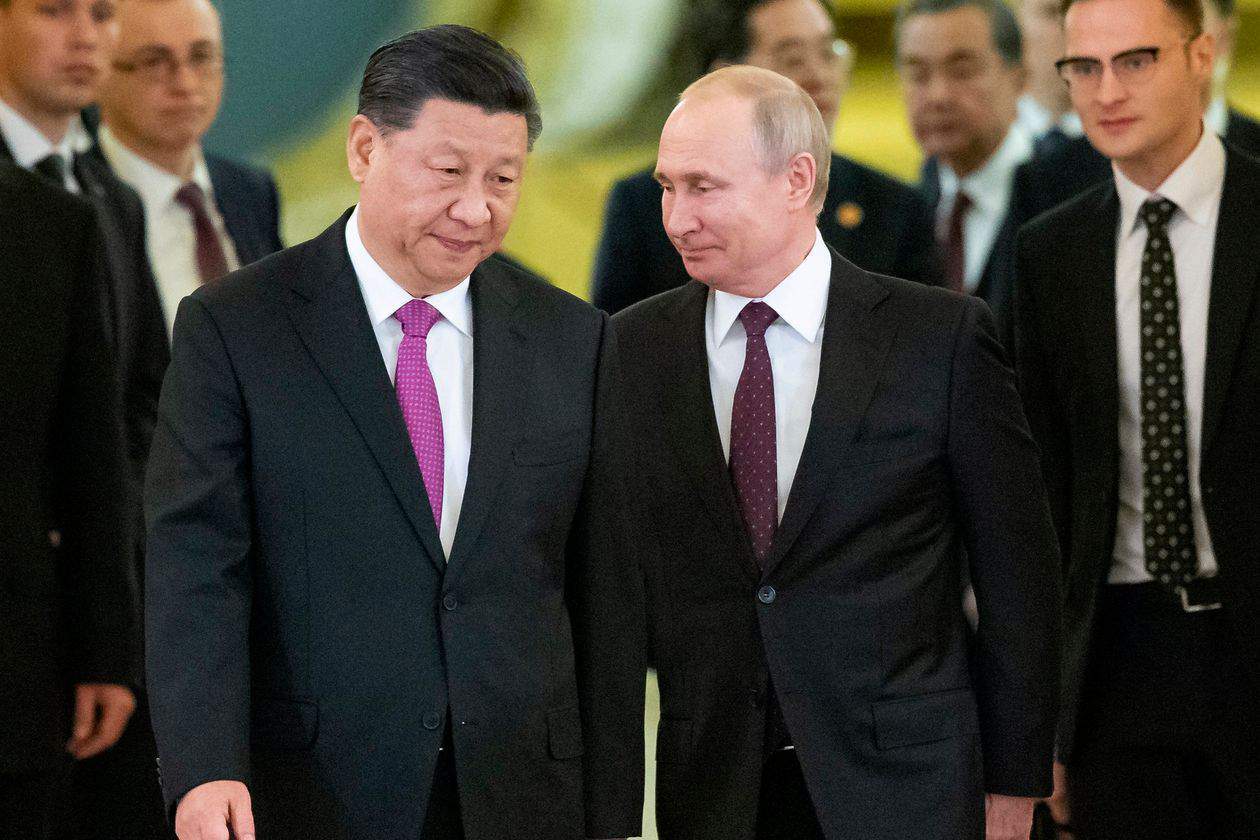Russia Charges Scientist With Passing Information to China

Russian prosecutors have charged a distinguished Russian scientist with treason after accusing him of passing classified information to China, according to his lawyer, in an example of the fragile friend-foe relationship between Moscow and Beijing.
Valery Mitko, president of the prestigious Arctic Civic Academy of Sciences in St. Petersburg, was arrested in February on the grounds of “treason in the form of espionage,” his lawyer Ivan Pavlov said Monday.
Mr. Pavlov said his client was accused of “transmitting information to do with hydro-acoustics.” He didn’t provide details on the specific nature of the material, but the official Russian news agency TASS cited a source familiar with the investigation as saying that Mr. Mitko gave China information related to “research on hydro-acoustics and submarine detection methods.”
The St. Petersburg branch of the Federal Security Service, or FSB, that is investigating Mr. Mitko’s case, didn’t immediately respond to a request for comment. At a regular press briefing Tuesday, Zhao Lijian, a spokesman for China’s Ministry of Foreign Affairs, declined to comment on the case saying he had no further information on the issue.
Mr. Mitko, 78, denies the charges and has been placed under house arrest until Oct. 10, Mr. Pavlov said.
Mr. Pavlov is head of Team 29, an informal association of rights activists which said it got involved in the case this month. “We believe that publicity and public outcry give a chance for a fair hearing,” Mr. Pavlov said.
He said that for the past several years Mr. Mitko traveled to China to give lectures on hydro-acoustics at the same university and his last trip was in 2018.
The only documents he took with him were “scientific materials,” which he used for his teaching activities, Mr. Pavlov said. “There were no secret documents. He had some documents on hydro-acoustics, but all the documents were based only on open sources,” he said.
Mr. Pavlov said Mr. Mitko never passed any documents to anyone and “especially not to representatives of Chinese special services, with whom he simply was not familiar,” he said. If a representative from Chinese special services was ever in his surroundings, “he did not know this,” Mr. Pavlov said.
In recent years, Russia and China have touted their strengthening relationship in the sphere of trade and technology and through military ties. But a history of rivalry and mutual suspicion remains between the two nations as they both seek to expand their economic and strategic influence on the world stage.
Over recent years, China has rapidly expanded its undersea fleet and succeeded in its quest to join the elite club of countries with nuclear submarines that can ply the high seas. Beijing’s increasingly potent and active sub force represents China’s most significant military challenge yet for the region and its enhanced underwater capabilities heighten the country’s capacity to enforce its territorial claims and thwart U.S. intervention.
The Pentagon’s 2019 annual report to Congress on the Chinese military said that “civilian research could support a strengthened Chinese military presence in the Arctic Ocean, which could include deploying submarines to the region as a deterrent against nuclear attacks.”
According to biographical information published by Roscongress, a socially oriented development institution that organizes forums and international conventions, Mr. Mitko is a reserve Captain 1st Rank, the most senior rank in the staff officer’s career group in the Russian Navy. From 1963 to 1994, he was a crew member on ships and submarines and an employee of naval institutes. Since 1994, when he was transferred to reserve as head of the Naval Academy’s department of undersea information systems, he has continued his scientific and pedagogical activity in academic and educational establishments, according to Roscongress.
According to TASS, throughout the course of his career, Mr. Mitko was awarded two dozen prestigious medals for scientific achievements. He has authored and co-authored more than 400 scientific papers and two textbooks.
Mr. Pavlov said he believes his client was arrested on espionage charges because “he’s in a risk group, which includes scientists who are carriers of extremely sensitive information, where criteria are blurred, and who have international contacts,” he said.
At least eight Russian scientists have been arrested and charged with treason in recent years for allegedly disclosing state secrets to foreigners, in high-profile criminal cases, according to TASS.
The list includes Vladimir Lapygin, a former space researcher at the Russian space agency, Roskosmos, who was sentenced to seven years in prison in 2016 after being convicted of passing classified material to China. Mr. Lapygin, 79, maintained his innocence. Memorial, a human rights group based in Moscow, categorized Mr. Lapygin as a political prisoner and had called for his immediate release. On June 11, a Moscow court freed him on parole.
The investigation into Mr. Mitko’s case is still ongoing, Mr. Pavlov said. If the case goes to trial and the scientist is convicted, he could serve up to 20 years in prison, the lawyer said.
Photo: Russia and China have touted their strengthening relationship, but a history of rivalry and mutual suspicion remains. - ALEXANDER ZEMLIANICHENKO/ASSOCIATED PRESS











